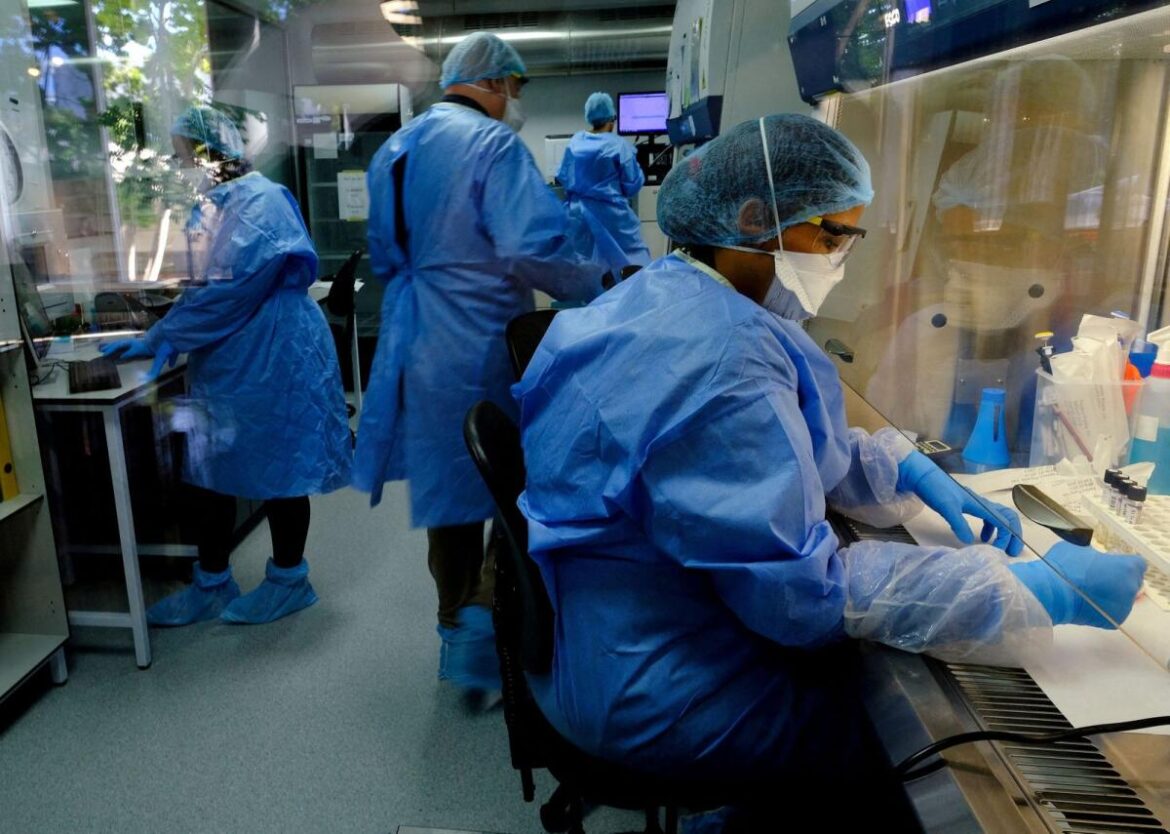By Staff Reporter
Groundbreaking new technologies seem to be emerging with increasing frequency nowadays.
Since its launch in November 2022, OpenAI’s generative artificial intelligence chatbot, ChatGPT, has become a global sensation, attracting more than 100 million users and inspiring numerous imitators.
The technology’s fast-evolving capabilities have also commanded the attention of world leaders, dominating discussions at both the United Nations Climate Change Conference in Dubai (COP28) and the annual meeting of the World Economic Forum in Davos.
It is not difficult to understand why. By harnessing AI tools developed by private companies like OpenAI, governments and civil-society organisations could make significant strides toward tackling global challenges like climate change and economic inequality.
Similarly, they could revolutionise how we fight infectious diseases, ensuring that life-saving care reaches those who need it most.
Tuberculosis is a prime example. TB, a preventable and curable disease, claims an average of more than 3,000 lives per day.
Although the mechanisms of TB transmission are well understood, and highly effective treatment regimens – including new and improved medications – are available worldwide, TB still led to 1.3 million deaths globally in 2022.
AI tools could play a major role in the global effort to end TB. To this end, the Global Fund to Fight AIDS, Tuberculosis, and Malaria is pursuing public-private partnerships with the goal of developing and deploying innovative digital public-health tools.
During a recent trip to Bangladesh, for example, I encountered a team of health-care providers from the public and private sectors, along with local community partners, who are using digital X-rays, AI, and telemedicine to facilitate rapid TB screening.
Patients whose X-ray results show signs of TB could immediately submit sputum samples for analysis and receive treatment at the community level, free of charge.
Similar initiatives are being launched around the world. In Pakistan’s Punjab province, the humanitarian aid organisation Mercy Corps uses AI tools to identify “hot spots” – remote or rural areas where TB cases might go undetected – and set up mobile health camps to deliver diagnostic and treatment services directly to local residents.
In the Padre de la Vega prison in Paraguay, health-care workers use Fujifilm ultralight portable X-ray machines and AI technology to provide rapid and precise TB screening.
Likewise, physicians at Cambodia’s National Centre for Tuberculosis and Leprosy Control in Phnom Penh bring portable Delft X-ray machines to nearby provinces to screen individuals unable to travel to the capital. And in Indonesia, a new partnership between the Global Fund, Siemens Healthineers, and the country’s national TB program aims to scale up early detection efforts by combining deep-learning AI technology and X-ray analysis to enable radiologists to read scans remotely.
Targeted, innovative projects such as these are crucial to overcoming persistent inequities that fuel the spread of infectious diseases: poverty, conflict- and weather-related displacement, overcrowding, and limited access to health facilities. Moreover, they are laying the groundwork for resilient health systems capable of meeting every person’s needs. For example, in addition to TB screenings, Pakistan’s mobile health camps offer essential services focusing on women and young children.
These examples underscore the importance of fostering collaboration among companies, industry leaders, governments, and local health providers to devise innovative ways to address solvable problems like TB. That is why the Global Fund, which contributes 76 per cent of all international financing to end TB, also allocates more than $150 million annually to develop digital tools aimed at promoting equity and helping remote communities access critical health-care services.
But much more is needed. Devising targeted, effective, and sustainable solutions requires active engagement with local communities to mitigate a wide range of other public-health threats, such as pandemics and antimicrobial resistance. This is why it is crucial to have committed partners who can envision and develop cutting-edge digital tools.
By leveraging AI to augment local medical expertise, we have an opportunity to overcome TB once and for all. In a world brimming with innovative ideas and emerging technologies that until recently were beyond our imagination, ending this global scourge, and perhaps others, is finally within reach. — Project Syndicate
Mohammed Yassin, a public-health physician and infectious disease epidemiologist with over 25 years of experience in treating and researching tuberculosis, is Senior TB Adviser at the Global Fund to Fight Aids, Tuberculosis, and Malaria.


